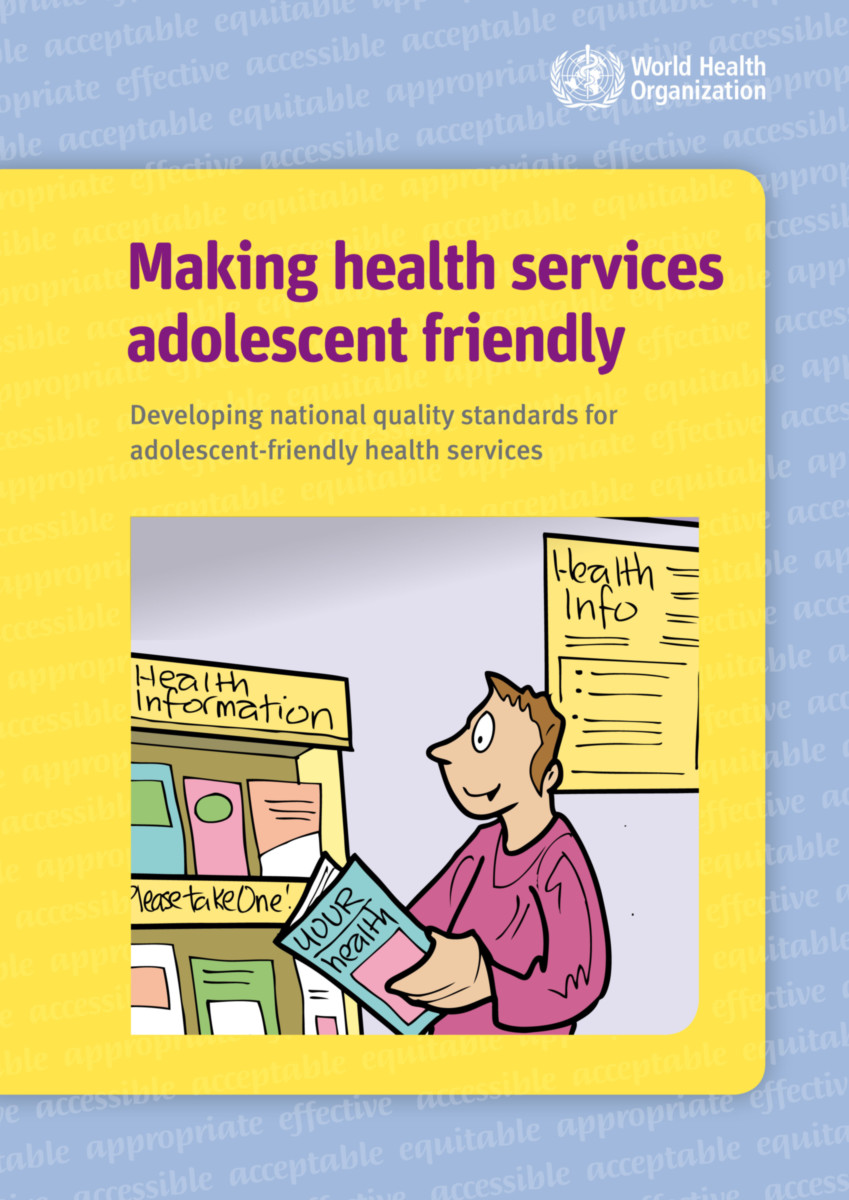Making Health Services Adolescent Friendly
Developing National Quality Standards for Adolescent friendly Health Services
Paperback
September 2013
9789241503594
More details
- Publisher
World Health Organization - Published
23rd September 2013 - ISBN 9789241503594
- Language English
- Pages 56 pp.
- Size 8.25" x 11.75"
$24.00
Making Health Services Adolescent Friendly: Developing National Quality Standards is intended to be a companion to the Quality Assessment Guidebook: A Guide to Assessing Health Services for Adolescent Clients, which was published by WHO in 2009. These two guidebooks are part of a set of tools to standardize and scale up the coverage of quality health services to adolescents, described in the WHO publication: Strengthening the health sector's response to adolescent health and development.
It sets out the public health rationale for making it easier for adolescents to obtain the health services that they need to protect and improve their health and well-being, including sexual and reproductive health services. It defines adolescent-friendly health services from the perspective of quality, and provides step-by-step guidance on developing quality standards for health service provision to adolescents. Drawing upon international experience, it is also tailored to national epidemiological, social, cultural and economic realities, and provides guidance on identifying what actions need to be taken to assess whether appropriate standards have been achieved.
Making Health Services Adolescent Friendly is intended for national public health program managers, and individuals in organizations supporting their work. Its focus is on managers working in the government sector, but it will be equally relevant to those working in the non governmental sector and the commercial sector.
World Health Organization
World Health Organization is a Specialized Agency of the United Nations, charged to act as the world's directing and coordinating authority on questions of human health. It is responsible for providing leadership on global health matters, shaping the health research agenda, setting norms and standards, articulating evidence-based policy options, providing technical support to countries, and monitoring and assessing health trends.


